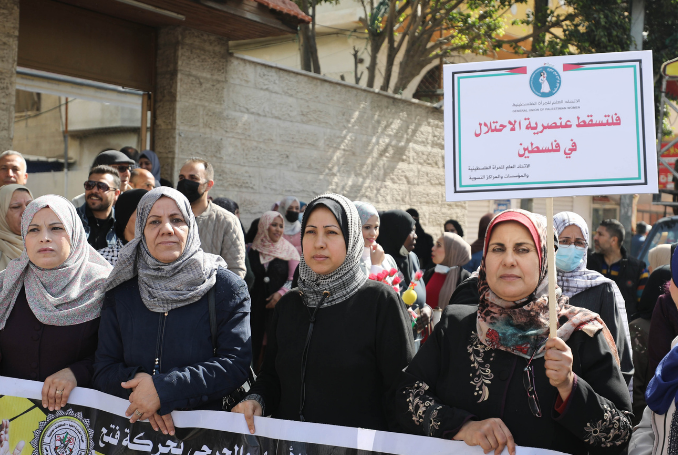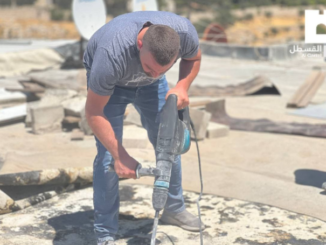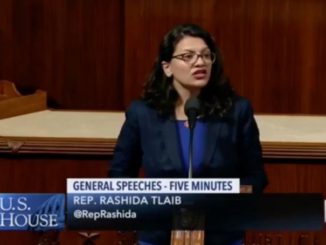
When Palestinian prisoner Naser Abu Hamid died on December 20 after battling lung cancer for more than a year, other families of Palestinian prisoners lost hope that their sons would be released, especially following the formation of the new far-right government led by Benjamin Netanyahu.
Abu Hamid’s health condition worsened due to the Israeli Prison Service’s (IPS) systematic policy of medical negligence.
The Palestine Chronicle interviewed the mothers of Palestinian prisoners Diyaa al-Agha, who has spent 31 years in an Israeli prison, and Hassan Salama, who was imprisoned 27 years ago.
Diyaa Means Light
“Diyaa’s name means light in Arabic. Indeed, he was the light of my life,” says al-Agha’s mother.
“He had remarkable charisma, was soft-hearted, and loved by all those around him. He did not change, even after 31 years of detention. He sacrificed his life for the sake of freedom.”
Diyaa was arrested during the First Intifada, which began on December 9, 1987, in the Jabalyia refugee camp after an Israeli army truck ran over a Palestinian car, killing four laborers, three of whom were from the Jabalyia camp.
Following that incident, a series of Palestinian demonstrations started. A popular resistance movement ensued, focusing largely on mass boycotts and civil disobedience. The Israeli military’s violent response – which included a government-endorsed policy of breaking the bones of protestors – led to high fatalities.
After six years of daily confrontations, a total of 1550 Palestinians were killed, over 70,000 were injured, and between 100,000 to 200,000 were detained. Among them, over 18,000 were held under administrative detention for long periods of time without charge or trial.
The Intifada petered out, finally coming to a halt after the signing of the Palestinian-Israeli Oslo Accords in September 1993, which led to the creation of the Palestinian Authority.
Vanished
During the Intifada, Diyaa al-Agha – who was a minor at the time – simply vanished. His family searched for him for months. In 1992, they were told that he had been accused of murder and was detained in the Israeli prison of Talmond. Al-Agha was held without trial until he turned 18 when the Israeli court sentenced him to life in prison.
“Since he was sentenced, I have been grieving the loss of my son every day,” his mother said. “My heart is full of sadness and I really find it hard to smile. I deeply miss his scent and his laughter.”
It is even harder for al-Agha’s mother to think about her beloved son during the annual Eid celebrations. She cannot help but wonder what his family would have been like had he lived a normal life.
She went to visit him nine months after he was detained. She and her daughter were led by Israeli soldiers through a dark tunnel that led to a small cage where they were ordered to sit.
“At that moment, I began trembling. I was thinking that they had deceived us, and that their real aim was to detain us too, or even worse, as I heard they had done so with many Palestinian women,” al-Agha’s mother added.
Then, the Israeli prison guards allowed al-Agha to meet them, from another small cage that was placed in front of them.
“He was exhausted and looked extremely sad. He was only a child at the time and I could see he was suffering,” al-Agha’s mother explained.
“He was wearing a brown t-shirt over the same clothes he was wearing nine months before. He was in pain and would only gesture with his hands to communicate with us rather than talking.”
The Israeli prison guards did not allow her to hug her son.
“It is ironic for me that an Israeli would think of my son as a terrorist for killing another Israeli, while they kill thousands of us and continue to do so,” al-Agha’s mother continued.
“This is why I compare him to (Ernesto) Che Guevara or Nelson Mandela. They were both called terrorists. Diyaa rejects oppression, injustice, and prejudice. His ultimate dream is the freedom of Palestine, which was colonized by the Israeli occupation in 1948 and called Israel.”
Al-Agha has been in many different prisons. After various humanitarian organizations, including the Palestinian Prisoner’s Society, put pressure on Israel to allow detainees to have books and to complete primary, and higher education, he graduated from high school and pursued two BAs: one in Historical Studies and another in Teaching Social Studies in 2021. According to a lawyer who recently met him, al-Agha matured to become a very responsible and sophisticated man.
Only Memories
Sadly, al-Agha’s story is not an isolated case. There are many Palestinian mothers and prisoners suffering the same fate, each one with an equally painful story.
Like al-Agha, Hassan Salama was also sentenced to life in prison. He has been detained for 27 years, 13 of which were in solitary confinement. His mother has totally lost hope he would be released. She still recalls his childhood memories and grieves for her son.
Salama was arrested six months after getting married. His mother visited him many times after that, but she feels it is never enough.
She wants to smell his scent, to feel his presence, and to make sure he is not being hurt in any way, something she has never been able to do. She was not allowed to provide him with his favorite dishes or books because of Israeli prison policy.
“Hassan has always been brave. He was smart at school, and he used to respect and help his teachers. I remember him as a little child, always acting like a wise man,” his mother told Palestine Chronicle.
“Hassan was frustrated because Palestine is colonized by Israel. It made him so angry to see his people being humiliated, and their homes being destroyed. As a result, he started to throw stones at the soldiers. A few years later, he became a freedom fighter. Now, he is in prison and all that is left of him is memories.”
Before he turned 18, Salama was jailed many times for throwing stones at Israeli soldiers. When he was 18 years old, he became a freedom fighter, which led to him being imprisoned for life some years later, in 1996.
While in prison, Salama divorced his wife as he realized he would never be released. His wife initially rejected the divorce, but he convinced her to accept it, saying it is so unfair for her to spend her time in loneliness grieving his loss, hoping one day he would be released.
Despite the struggle and the harsh reality he encounters in the Israeli prisons, Salama was able to pursue his BA studies in history from Al-Aqsa University.
Salama’s mother hoped to see him at home once again, but this never happened. She has not seen her beloved son for 10 years now and she totally lost hope of seeing him again.
“Last time I saw Hassan, his beard was white, and his face seemed pale. When he was first arrested, he was a young, strong, and vibrant man with short dark black hair. He is an old man now. Hassan sacrificed his life for Palestine,” his mother said, with her eyes filled with tears.
Far-right Israeli minister Itamar Ben-Gvir recently visited the high-security Nahfa Prison where he repeated that the poor conditions for Palestinian prisoners should never improve.
This means that neither al-Agha nor Salama is likely to be released soon and that many more Palestinian mothers will continue to suffer the grief of prolonged separation from their children.

– Shahd Safi is a Gaza-based freelance translator and writer for We Are Not Numbers. WANN contributed this article to The Palestine Chronicle.







